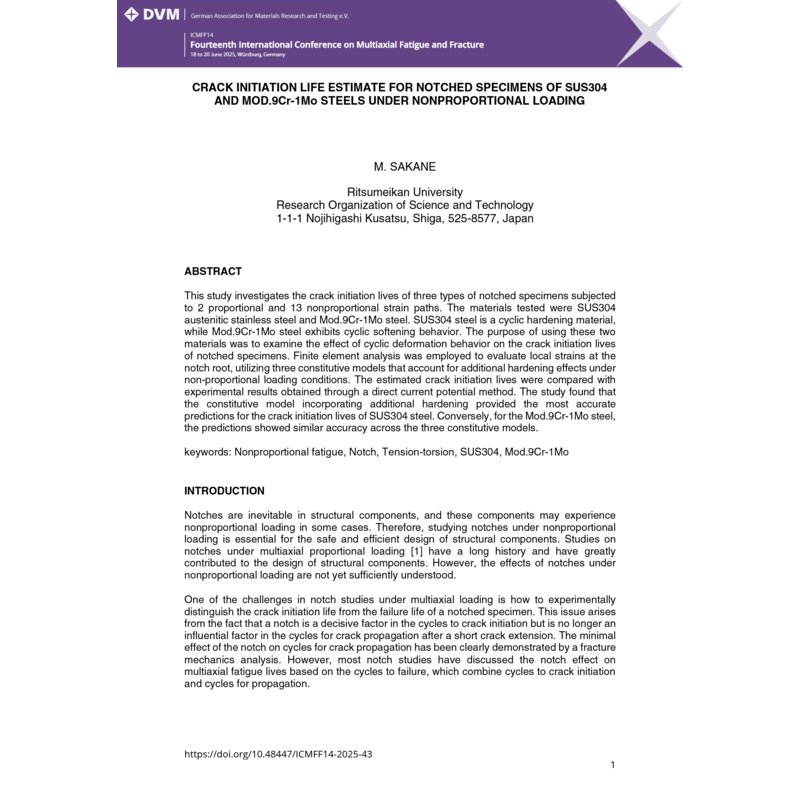- Online only



The objective of the study is to develop a reliable method for estimating the crack initiation life of notched specimens subjected to nonproportional loadings. As reported by Itoh et al.[1], nonproportional loading causes additional strain hardening depending on the nonproportional strain paths. This strain hardening may significantly affect the crack initiation life of notched specimens; however, systematic experimental research on the effect of nonproportional loading on this notch effect has not been reported.
This study employs two materials: SUS304 steel, which exhibited significant additional hardening under nonproportional loading, and Mod.9Cr-1Mo steel, which showed little additional hardening under nonproportional loading.
Three types of…

Datenschutzbedingungen (bearbeiten im Modul "Kundenvorteile")

Lieferbedingungen (bearbeiten im Modul "Kundenvorteile")

Rücksendebedingungen (bearbeiten im Modul "Kundenvorteile")
The objective of the study is to develop a reliable method for estimating the crack initiation life of notched specimens subjected to nonproportional loadings. As reported by Itoh et al.[1], nonproportional loading causes additional strain hardening depending on the nonproportional strain paths. This strain hardening may significantly affect the crack initiation life of notched specimens; however, systematic experimental research on the effect of nonproportional loading on this notch effect has not been reported.
This study employs two materials: SUS304 steel, which exhibited significant additional hardening under nonproportional loading, and Mod.9Cr-1Mo steel, which showed little additional hardening under nonproportional loading.
Three types of circumferential notched specimens were used in this study, the shapes and dimensions of which are shown in Fig.1. These notched specimens have a similar shape, but only the root radius was varied to obtain different elastic stress concentration factors. The flank angle was 60 degrees, and the root radii used were 0.6 mm, 0.2 mm, and 0.09 mm. The corresponding elastic stress concentration factors in tension were 2.6, 4.2, and 6.0, respectively.
The three types of notched specimens were fatigued using 15 strain paths in strain-controlled mode. The cycles to crack initiation were determined by a direct current potential drop method. Cycles to crack initiation were predicted using local strain ranges calculated by the finite element method with three constitutive relationships. The three constitutive relationships were: elastic-perfect-plastic (EPP), elastic-linear plastic (ELP), and elastic-linear plastic taking account additional hardening (AH) models. All three constitutive models provided conservative estimates, but the AH model gave the most accurate estimates among them. The three models showed less conservative estimates for Mod.9Cr-1Mo steel compared to SUS304 steel, indicating that the cyclic hardening and softening behavior had a clear influence on cycles to crack initiation.